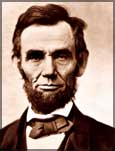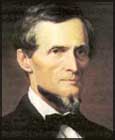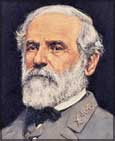Unity in Diversity
Meghnad DESAI
Was Abraham Lincoln a war criminal? He took the US or at least its
northern states to a war with the south, which resulted in the largest
loss of lives in that nation’s history. The south was ruined and did not
recover economically for at least 50 years.
|

President Mahinda Rajapaksa |
The Black slaves were freed, but their condition remained miserable
for another 100 years. Lincoln fought in the name of the Union, not for
the abolition of slavery, which did not happen till halfway through the
War, while the Southern Confederacy fought in the name of States’
Rights. Jefferson Davis, the President of the Confederacy, remained a
hero in the south as did General Robert E Lee. Lincoln remains a hero
not just for the Americans but the world over. I write this because
within India’s neighbourhood we have had a civil war, which has just
ended. The man who led the nation to a victory has just been re-elected
President. Yet he is widely reviled internationally and even within Sri
Lanka. Except that a majority of his people re-elected him, Mahinda
Rajapaksa has few friends in high places. There are allegations of fraud
and from all signs we have, the Tamil minorities and other non-Sinhala
groups voted for his rival Sarath Fonseka. The issue of the relief and
rehabilitation of the Tamil refugees remains urgent.
The origins of the civil war are in the high-handed behaviour of the
Sinhala majority who subverted the Constitution Sri Lanka had at
Independence and abridged the rights of the Tamil minority, downgraded
their language and discriminated against them in jobs. For 25 years
after 1956, when the first ‘Sinhala Only’ legislation was enacted, the
Tamils tried to negotiate, but the majority always won.
The Tamils split into democratic and militant factions and in 1983
the LTTE began the armed struggle. Many Presidents tried to seek
reconciliation, but within the Sinhala majority there was also a split
between those who would seek peace and those who wanted war. I was in
Sri Lanka when, during the election in 1999, Chandrika Kumaratunga was
hit by a bomb during campaign and lost sight in her eye. When the
polling ended, there was a deathly silence in the streets of Colombo.
Sri Lankans may enjoy the oldest democracy in South Asia, but they lack
the joie de vivre that Indians bring to elections.
|

Abraham Lincoln |

Jefferson Davis |

General Robert E Lee |
This is because the majority was as divided as the nation itself was
between the majority and the minority. This is also why the war dragged
on. By some device or other, Rajapaksa, whom many underestimated, took
the decision that he would end the war regardless of the loss of life
involved. The carnage was incredible but in the end, Prabhakaran was
defeated and killed. The LTTE’s gamble had failed.
It may sound callous to say this, but Rajapaksa would be regarded as
the saviour of his nation. Modern nations, especially post-colonial
ones, value the integrity of their territory and do not entertain
violent sub-nationalism. India has had its share in Khalistan and in the
many struggles in the north-east and continues to have problems in
Kashmir. Yet, Indian citizens have allowed their government to ride
roughshod over human rights as long as national integrity has been
preserved. What is more, the largest minority has been by and large
shielded from the sort of suffering that Sri Lankan Tamils experienced.
The best way forward is shown by South Africa, where the end of
apartheid was achieved without a war. The Truth and Reconciliation
Commission was vital to let bitter enemies confront each other and work
through their anger and grief. It could not have been easy. I met Albie
Sachs, now a judge in the Supreme Court of South Africa, who told me how
he met the man responsible for his loss of limb, but they did talk it
through. Archbishop Desmond Tutu was instrumental in making the Truth
and Reconciliation Commission possible. Now someone of his stature has
to come forward from within Sri Lanka and begin the process of binding
the wounds. A nation is whole not just when its territory is single but
only when its people feel they all belong to it equally.
Eminent economist Lord Meghnad Desai is a professor emeritus of the
London School of Economics
|



